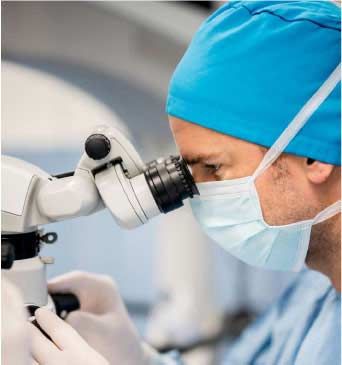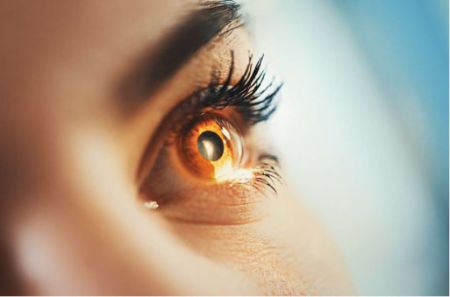![]()
Because of the many various aspects necessary for the proper function of the eye, ophthalmology has been divided into several subspecialties. One of these is retina disease.
Many of our ophthalmologists specialize in diseases of the retina. The retina sits at the back of your eye and has light-sensitive cells called rods and cones. When you look at an object, the front of your eye contains a lens that "projects" an image onto the retina. Rods and cones then send electrical signals to the brain along the optic nerve. The brain uses these signals to interpret what you are seeing. When the retina can’t function correctly, these electrical signals can’t make it to the optic nerve, leading to vision complications. Generally speaking, the retina is sensitive to trauma and can be damaged by a number of conditions including diabetic retinopathy, macular degeneration, retinal tears, and retina detachments. Untreated, these conditions can lead to permanent vision loss.
The retina doctor is most often called upon when vision can no longer be improved after appropriate glasses have been prescribed and degeneration cannot be explained by glaucoma, cataract, or other conditions. You may also be referred to a retina doctor if there is any abnormality noted in the back of the eye on routine eye examination.
Examining The Retina
Depending on the eye doctor, the health of your retina may be evaluated using a tool referred to as an ophthalmoscope, or by retinal imaging technology. During a retinal scan, we take a digital picture of the back of your eye that includes the retina, the optic disk (a spot on the retina that holds the optic nerve,), and blood vessels. This allows your eye doctor to detect eye and health conditions as well gauge the overall health of your eyes.
Retina doctors are experts in treating diseases of the retina, macula, and vitreous, including the following:

Ophthalmology
Ophthalmology is a specialty that focuses on diseases of the eye and their treatments, often including surgery.
Learn More

Primary Eye Care
When someone is looking to improve their vision, or receive a routine eye exam, optometrists are the first line of defense in eye care.
Learn More

Retina
Because of the many aspects needed for proper eye function, ophthalmology has been divided into subspecialties. One of these is retina disease.
Learn More

Acuity 360
The Acuity 360 Advanced Vision Center™ eye exam uses a minimally invasive method to provide a comprehensive look at your eye health..
Learn More